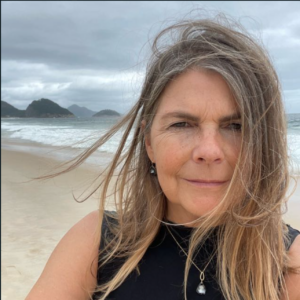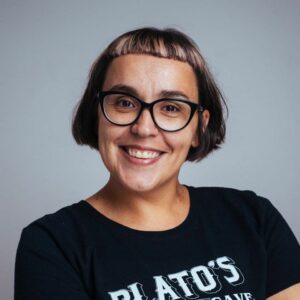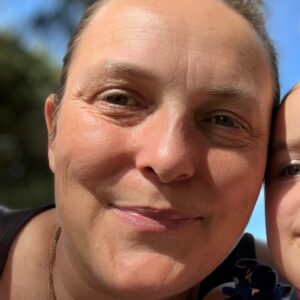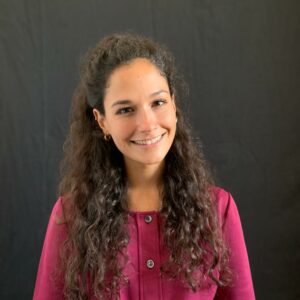Marina Santi (Italy) holds a PhD in Educational Sciences and is Full Professor in Didactics and Inclusive Education. She works in the Department of Philosophy, Sociology, Pedagogy and Applied Psychology at University of Padova, Italy. Her research deals with dialogue and argumentation concerning knowledge construction processes and the investigation of social interaction as cognitive potential for learning. She specializes in classroom discussion both as method and context for the development of higher-order thinking skills and reflective capabilities. She is an expert on “Philosophy for Children”, a subject into which she has carried out a wide range of empirical research to evaluate the effectiveness of philosophical practice within communities of inquiry for the development of critical, creative and caring thinking and the construction of inclusive social environments. Her recent studies focus on improvisation teaching and learning. Among her main publications: with Stefano Oliverio (eds.) (2012), Educating for Complex Thinking through Philosophical Inquiry. Models, advances and proposals for the new millennium, Napoli, Liguori; (2010) (Ed.), Improvisation Between Technique and Spontaneity, Cambridge Scholar Publisher; with ZORZI E. (2016) (Eds.), Education as Jazz. Interdisciplinary Sketches on a New Metaphor. New Castle: Cambridge Scholar Publishing.
About Us
Get to know us
We foster thinking in young people
Philosophy for Children (P4wC) was created by Matthew Lipman and Ann Margaret Sharp as a pedagogy to foster thinking in young people. They established the Institute for the Advancement of Philosophy for Children (IAPC) at Montclair State University in the 1970s. Since then, P4wC centres have developed all over the world. In order to create synergy amongst P4wC practitioners, ICPIC was established in 1985 to oversee biennial conferences and expand the reach of P4wC internationally.
Our Vision
ICPIC envisions a future where children’s ideas about the world are taken seriously thanks to educational initiatives that nurture their thinking and community-building skills.
Our Mission
ICPIC is dedicated to supporting people and projects around the globe with the shared aim of engaging young people in philosophical inquiry both in formal and informal learning contexts.
Our Objectives
ICPIC’s constitution states our objectives as follows:
-
To promote, coordinate and disseminate research and to organize international congresses as well as specialized symposia.
-
To promote relationships between philosophers, educators and others concerned with the fostering of children′s cognitive development through philosophy
-
To establish relationships among such philosophers and educators committed to introducing philosophy into elementary and secondary schools throughout the world.
-
To encourage rapprochement among scholars with regard to problems of pedagogical method.
-
To encourage rapprochement among scholars with regard to problems of pedagogical method.
-
To coordinate efforts of those seeking to introduce philosophy into all elementary and secondary school curricula.
-
To promote the setting up of regional centers of philosophy to assist in the designing and dissemination of courses in philosophical inquiry with children.
-
To encourage philosophers to devote themselves to continued improvement of the quality of education for all children.
Leadership Team
Sumaya Babamia
Vice President
Sumaya Babamia (South Africa) is a P4wC practitioner and researcher. Her engagement with P4wC spans conferences, training programmes, publications, and philosophical enquiries with under-resourced communities in Johannesburg. Sumaya trained as a speech-language therapist, and has a special interest in early childhood disability, education, and intervention. Her work focuses on transdisciplinary teaching and learning practices across the fields of disability and education. Her doctoral research looks at the intersection of P4C with autistic children using a posthumanist praxis.
Joana Rita Sousa
Secretary
Joana Rita Sousa (Portugal) is a freelancer philosopher and a questionlogist working in #P4wC since 2008. With a MSc in Philosophy for Children and #P4wC certifications from different organizations, Joana Rita is committed to develop communities of philosophical inquiry with children, teenagers and adults in different contexts. Since 2008 Joana Rita has been running a project called filocriatividade that allows her to travel and to run workshops and train teachers and educators in philosophy for/ with children in different places.
Bonnie Zuidland
Treasurer
Bonnie Zuidland (Australia) is a secondary school teacher, primarily teaching senior philosophy. She is also a long standing member of VAPS (Victorian Association for Philosophy in Schools) supporting P4wC training, conferences and other projects. She has co-authored resources for teaching and implementing the Ethical Capabilities (Victorian Curriculum) as well as develop teacher training programs for VAPS.
Maughn Gregory
Research
Dr. Maughn Rollins Gregory is professor of educational foundations at Montclair State University, where he succeeded Matthew Lipman as the director of the Institute for the Advancement of Philosophy for Children in 2001. He holds a JD as well as a PhD in philosophy. He is co-editor of the Routledge International Handbook of Philosophy for Children (Routledge, 2016) and the Philosophy for Children Founders series with Routledge.
Maria Martha Barreneche
Membership Coordinator
Maria Martha Barreneche (born in the USA, raised in Argentina and living in Italy & USA) is a secondary school teacher, with a degree in Educational Sciences & Philosophy. She has been involved with P4wC in Argentina, Italy and the USA, having received P4wC training at the University of Padova (Italy) and at PLATO Institute (USA), while pursuing her PHD at the UNIPD in P4wC.
Daniel Gaivota
Web Coordinator
Daniel Gaivota (born in Brazil and based in Italy) learned to read and write in the sand. Walking in similar textures, graduated in Philosophy and did a PhD in Education. He has been a public school teacher in Rio de Janeiro for many years and now works as a professor at the University of Padova. Furthermore, flaps his wings as a researcher at the Center for Studies on Philosophies and Childhoods, linked to the Postgraduate Program in Education at UERJ. More important than all this, believes in the school's philosophical potency in making people fall in love with the world. He is passionate about tangerines and the sea, and always tries to dream a little before going to sleep.
ABOUT
Philosophy
FOR/WITH
Children
Now half a century old, P4wC has become a significant educational and philosophical movement that is practiced, interpreted, researched and recreated in more than 60 countries around the world. From kindergartens to universities, children’s shelters to governmental ministries, P4wC has become increasingly popular as an approach to child-driven education in both formal and informal contexts, as well as a dialogic pedagogy used with adults. Beyond ICPIC, P4wC is grounded many national and regional centers that train, support and bring practitioners, philosophers and teacher educators together to share and theorize practice.
history & growth
Philosophy for Children offers a distinctive perspective in a number of key areas of inquiry and provides a counter-narrative to psychological and sociological perspectives that often dominate educational discourse. Its radical move, in bringing child and philosophy together, has made a unique contribution to the blurring of disciplinary boundaries and opened up new avenues for scholarly inquiry as well as educational practice.
The advent of P4wC in the United States in the late 1960s was part of a broader intensity of interest in philosophy for young people. Founder Matthew Lipman began work on his first philosophical novel for children in 1968 and the initial classroom experiment that followed convinced him “that philosophy can and should be part of the entire length of a child’s education…because it is abundantly clear that children hunger for meaning, and get turned off by education when it ceases to be meaningful to them.”
In 1973, Lipman met his lifelong collaborator Ann Margaret Sharp with whom he co-founded the Institute for the Advancement of Philosophy for Children (IAPC) at Montclair a year later. Lipman and Sharp saw doing philosophy as an ideal of the educational experience, even capable of transforming education more broadly
Toward that end, they produced a curriculum designed to accomplish a complex set of objectives: connecting children with the philosophical dimensions of their experience, exposing students and teachers to diverse positions from the philosophical tradition, modeling children engaged in philosophical dialogue with each other and with adults, and illustrating philosophical inquiry making a difference in children’s lives.
At Montclair, Lipman and Sharp’s professional development programs evolved into undergraduate and graduate courses, and masters and doctoral degree programs, and today numerous universities around the world offer similar P4wC courses and programs. Lipman and Sharp’s work almost immediately attracted the attention of philosophers and educators around the world, thousands of whom have gone to the IAPC to study, train and research. Many of them established their own local organizations to develop curricula, research, professional development and university courses.
The P4wC movement has grown into a diverse field both at the levels of theory and practice. Though varied in their materials, methods and aims, P4wC approaches are united in their efforts to engage young people in philosophical dialogue inspired by questions and concepts that matter to them.
Testimonials & Impact
Method and Alternative Approaches
P4wC theorists and practitioners take the controversial position that teachers with no formal philosophy education can be trained to use a dialogic method designed to engage their students in meaningful, rigorous philosophical inquiry. This method, originally developed by Lipman and Sharp, is called the “Community of Philosophical Inquiry” (CPI) and involves five stages:
1. The offering of the text: Students read or enact a philosophical story together.
2. The construction of the agenda: Students raise questions prompted by the text and organize them into a discussion agenda.
3. Solidifying the community: Students discuss their questions in a dialogue facilitated by an adult.
4. Using exercises and discussion plans: The facilitator introduces relevant activities to deepen and expand the students’ inquiry.
5. Encouraging further responses: Student extend their inquiry through other activities, such as self-assessments of their philosophy practice, art projects and action projects.
Since the early 1970s, the CPI has inspired numerous and divergent approaches, including:
✓ Per Jespersen’s approach that draws on the tradition of storytelling (Denmark)
✓ Catherine McCall’s approach that emphasizes rigorous logical argumentation (Scotland)
✓ Ekhart Martens’ “five finger model” of incorporating phenomenology, hermeneutics, analysis, dialectics and speculation as phases of philosophical inquiry (Germany)
✓ Karel van der Leeuw and Pieter Mostert’s approach combining insights from Lipman, Nelson and Chinese philosophy (the Netherlands)
✓ Michel Tozzi’s “democratic-philosophical method” in which students are assigned specific functions in the context of parliamentary discussion (France)
✓ Oscar Brenifier’s method of Socratic maieutics that focuses on self-confrontation and discipline of thought (France)
In addition, Gareth Matthews inaugurated the study of philosophy in children’s literature, which opened the way for children’s picturebooks to become an important curricular resource, notably in the work of Karin Murris, Joanna Haynes and Thomas Wartenberg.








